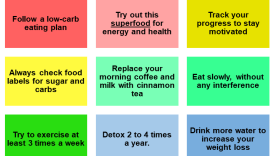Revitalize Your Body and Mind with These Self-Care Practices

In today’s fast-paced world, self-care is often viewed as a luxury rather than a necessity. However, taking the time to prioritize one’s well-being has profound implications on physical, mental, and emotional health. Many individuals find themselves caught up in daily responsibilities, neglecting personal needs and desires. The result? Increased stress, anxiety, and burnout.
- Revitalize Your Body and Mind with These Self-Care Practices
- Finding Balance
- Importance of Self-Care
- Benefits of Self-Care
- Physical Self-Care
- Regular Exercise
- Proper Nutrition
- Mental Self-Care
- Meditation
- Journaling
- Emotional Self-Care
- Setting Boundaries
- Practicing Gratitude
- Social Self-Care
- Connecting with Loved Ones
- Joining Support Groups
- Spiritual Self-Care
- Mindfulness Practices
- Nature Walks
- Self-Care for Relaxation
- Bubble Baths
- Reading for Pleasure
- Incorporating Self-Care into Daily Routine
- Creating a Self-Care Plan
- Prioritizing Me-Time
- Conclusion
- The Journey of Self-Care
Finding Balance
Self-care doesn’t have to consume large chunks of time. It can be seamlessly integrated into daily life. Here are some simple ways to start:
- Morning Rituals: Dedicate the first 10 minutes of your day to breathing exercises or stretching.
- Mindful Meals: Pay attention to what you eat. Opt for nutritious options that nourish your body.
- Digital Detox: Allocate a few hours in your week to disconnect from screens and reconnect with yourself.
By recognizing self-care as essential, individuals can cultivate a healthier lifestyle, enhancing overall quality of life.
Importance of Self-Care
Understanding the importance of self-care is crucial in fostering a balanced lifestyle. Just like plants need water and sunlight to thrive, individuals need self-care to flourish in their daily lives. Many people dismiss self-care as indulgence, but it plays a pivotal role in overall well-being.
Benefits of Self-Care
By integrating self-care into daily routines, individuals can experience numerous benefits, including:
- Reduced Stress: Regular self-care practices help to lower cortisol levels, leading to a calmer mindset.
- Enhanced Productivity: Taking breaks and engaging in enjoyable activities can recharge mental batteries, making it easier to focus.
- Improved Relationships: When individuals prioritize their own well-being, they tend to be more present and emotionally available to others.
For instance, after realizing how overwhelmed she felt, a friend of mine started setting aside ‘me-time’ each week. This simple act not only lifted her spirits but also improved her interactions with family and friends. Remember, self-care isn’t selfish; it’s essential for nurturing a vibrant, healthy life.
Physical Self-Care
Transitioning from the comprehension of self-care’s importance, it’s essential to recognize the significance of physical self-care. Taking care of the body sets the foundation for overall well-being and vitality.
Regular Exercise
Exercise is not just about aesthetics; it’s about enhancing longevity and quality of life. Engaging in physical activity can help to elevate mood and reduce anxiety. Here are some ideas to incorporate regular exercise into a busy lifestyle:
- Walking Meetings: Swap sitting for walking when discussing ideas with colleagues.
- At-Home Workouts: Use online platforms for yoga or HIIT classes to save commuting time.
- Weekend Adventures: Plan hikes or bike rides with friends or family.
Proper Nutrition
Alongside exercise, proper nutrition fuels the body and mind. Eating a balanced diet filled with whole foods can significantly impact energy levels and mood. To maintain good nutrition:
- Meal Prep: Spend a few hours each week preparing healthy meals to avoid the temptation of fast food.
- Hydration: Aim for at least eight glasses of water a day to keep the body functionally at its peak.
- Mindful Eating: Pay attention to food choices, savor each bite, and listen to hunger cues.
Embracing these aspects of physical self-care can lead to a more invigorated, healthy life. A personal experience illustrates this: after committing to a balanced diet and regular exercise, a family member reported not only weight loss but also improved energy, allowing her to enjoy activities with her kids more fully. This, indeed, is the power of physical self-care.
Mental Self-Care
Building on the importance of physical self-care, mental self-care is equally vital in maintaining a healthy balance in life. Mental wellness directly influences how individuals handle stress, relate to others, and make choices. Incorporating specific practices into daily routines can significantly enhance mental clarity and emotional stability.
Meditation
Meditation has gained popularity for its ability to quiet the mind and reduce anxiety. Just a few minutes a day can facilitate a sense of calm and focus. Here are some simple ways to start:
- Guided Meditations: Use apps or online videos that walk you through the process, making it easier for beginners.
- Set a Routine: Choose a specific time each day, such as morning or evening, to establish consistency.
- Focus on Breathing: If thoughts wander, gently bring your attention back to your breath.
Journaling
Journaling serves as a powerful tool for self-reflection and emotional regulation. Writing down thoughts and feelings can help individuals process daily experiences. Tips for effective journaling include:
- Daily Entries: Set aside 10-15 minutes each night to jot down highlights and challenges faced throughout the day.
- Prompts: Use prompts like “What am I grateful for today?” to inspire deeper reflections.
- Free Writing: Allow thoughts to flow freely without worrying about structure or grammar.
For instance, a colleague of mine found that journaling helped her articulate her feelings during a stressful project, leading to clearer communication with her team. By prioritizing mental self-care through practices like meditation and journaling, individuals can create a more resilient, peaceful state of mind.
Emotional Self-Care
As we transition from mental self-care, it’s important to highlight that emotional self-care is a key component to achieving a balanced, happy life. Tending to emotional needs allows individuals to navigate life’s challenges with resilience and optimism.
Setting Boundaries
One of the most effective ways to care for emotions is by setting boundaries. Establishing limits can prevent burnout and foster healthier relationships. Consider these tips:
- Know your limits: Reflect on what drains your energy and communicate these boundaries to others.
- Learn to say no: Don’t be afraid to decline commitments that don’t serve your well-being.
- Be consistent: Once boundaries are set, make an effort to uphold them; this reinforces their importance.
For example, a friend of mine learned the hard way that overcommitting to social events led to exhaustion. After setting boundaries around her time, she found that her energy levels and mood improved significantly.
Practicing Gratitude
Another powerful tool for emotional self-care is practicing gratitude. Acknowledging and appreciating the positive aspects of life can shift perspectives and enhance overall happiness. Here are some ways to cultivate gratitude:
- Gratitude Journals: Write down three things you are thankful for each day. This simple act can boost mood and foster positivity.
- Share Kudos: Express appreciation to friends or family members verbally or through small notes.
- Mindfulness: Take moments throughout the day to recognize and appreciate the beauty around you.
A family member adopted a gratitude practice by sharing daily highlights over dinner. This not only strengthened their family bond but also cultivated a more joyful atmosphere. By prioritizing emotional self-care through setting boundaries and practicing gratitude, individuals can foster a more fulfilling life.
Social Self-Care
Building on the foundation of emotional self-care, social self-care plays a crucial role in fostering strong relationships and a supportive network. Connecting with others not only strengthens bonds but also enhances overall happiness and well-being.
Connecting with Loved Ones
Taking the time to connect with friends and family provides emotional nourishment. It’s essential to prioritize these relationships, and here are some ways to strengthen connections:
- Schedule Regular Catch-ups: Set aside time for phone calls or video chats with loved ones.
- Plan Activities Together: Organize game nights, dinners, or outdoor adventures to create shared memories.
- Be Present: Practice active listening during conversations, showing genuine interest in what others have to say.
I remember a time when I arranged a monthly dinner with friends. It not only rekindled old friendships but also created a much-needed support network during challenging times.
Joining Support Groups
Support groups can be incredibly beneficial for those facing similar challenges. Engaging with others who understand can foster a sense of belonging and empathy. Here are some tips for getting involved:
- Research Local Groups: Look for community organizations or online forums that focus on shared experiences, such as parenting or mental health.
- Attend Meetings Regularly: Consistency can help build trust and rapport among group members.
- Share and Listen: Engage fully by sharing personal experiences and being open to the stories of others.
A colleague of mine joined a local writing support group and found not only camaraderie but also motivation to advance her writing goals. By prioritizing social self-care through these connections, individuals can cultivate a supportive network that enhances their overall quality of life.
Spiritual Self-Care
Continuing from the discussion on social self-care, it’s essential to acknowledge that spiritual self-care nurtures a deeper connection to oneself and the universe. Engaging in activities that foster spirituality can bring a sense of peace, purpose, and clarity to life.
Mindfulness Practices
Mindfulness practices invite individuals to remain present in the moment and foster a greater awareness of thoughts and feelings. Incorporating mindfulness into daily life can diminish stress and enhance gratitude. Here are a few accessible practices:
- Meditation: Set aside time each day, even if just for five minutes, to focus on breathing and relax the mind.
- Guided Imagery: Use audio recordings that guide you through peaceful landscapes, helping tap into a calming state of mind.
- Mindful Eating: Savor each bite during meals, focusing on flavors and textures to deepen the experience.
After integrating mindfulness into her routine, a friend of mine reported feeling more grounded, especially during hectic workdays.
Nature Walks
Spending time in nature can serve as a profound spiritual practice, allowing individuals to reconnect with the earth and find tranquility. Consider these ideas for integrating nature walks into your routine:
- Weekly Hikes: Explore local trails or parks to immerse yourself in the beauty surrounding you.
- Mindful Observation: While walking, take note of sights, sounds, and smells, allowing nature to soothe your mind.
- Reflective Time: Use the walk as an opportunity to reflect on personal goals or express gratitude for the beauty of the natural world.
By embracing spiritual self-care through mindfulness and nature walks, individuals can cultivate a deeper sense of peace and connection, enriching their overall well-being.
Self-Care for Relaxation
Shifting from spiritual self-care, it’s crucial to explore practices specifically aimed at relaxation. Incorporating relaxation techniques into a routine can create a sanctuary amidst a busy world, allowing for rejuvenation and a fresh perspective.
Bubble Baths
One of the most indulgent forms of self-care is a soothing bubble bath. It offers not just relaxation but also a chance to unwind and reflect. Here are a few tips to enhance the experience:
- Set the Mood: Dim the lights, light candles, and play soft music to create a calming atmosphere.
- Add Bath Products: Consider adding bath oils or salts infused with essential oils like lavender or eucalyptus for an aromatic experience.
- Bring Comfort Items: Have a good book or your favorite drink nearby, so you can enjoy while soaking.
I remember a particularly long week when I treated myself to a bubble bath; it transformed my stress into tranquility within moments.
Reading for Pleasure
Another fantastic way to relax is diving into a good book. Reading allows for an escape and often provides a much-needed mental break. To maximize the benefits:
- Create a Reading Nook: Designate a cozy space that invites you to settle in with a book, surrounded by pillows and blankets.
- Choose Enjoyable Genres: Pick genres that interest you, whether it’s fiction, self-help, or poetry. The key is enjoyment!
- Set Time Aside: Allocate specific times during the week to indulge in reading, turning it into a cherished ritual.
A dear friend of mine found solace in reading fictional novels after a hectic day; it became her way to decompress and transport herself to different worlds. By incorporating these relaxation techniques, individuals can cultivate a more balanced and peaceful state of mind.
Incorporating Self-Care into Daily Routine
As we wrap up our discussion on relaxation techniques, it’s time to focus on how to make self-care an integral part of everyday life. By embedding self-care into daily routines, individuals can ensure ongoing well-being amidst their busy schedules.
Creating a Self-Care Plan
A structured self-care plan can serve as a roadmap for prioritizing personal well-being. Below are steps to create an effective plan:
- Identify Needs: Reflect on what self-care practices resonate most—be it physical, emotional, social, or spiritual activities.
- Set Realistic Goals: Create achievable goals, such as dedicating 10 minutes a day to meditation or planning a weekend walk in nature.
- Schedule Activities: Use a calendar or planner to block out time for these self-care activities, treating them as important appointments.
When I first crafted my self-care plan, it transformed my approach to mental wellness, offering clarity and direction.
Prioritizing Me-Time
Prioritizing ‘me-time’ is essential for maintaining balance. Here’s how to truly value that time:
- Guard Your Time: Be protective of your me-time, ensuring it is free from interruptions, including digital distractions.
- Set Boundaries: Communicate your self-care schedule to others, ensuring they understand the importance of this time to you.
- Be Flexible: While routines are important, be open to adjusting your self-care activities as your needs evolve.
A colleague of mine dedicated Sunday afternoons to herself—time filled with her favorite hobbies. This commitment not only recharged her but helped her face the upcoming week with renewed energy. By implementing a self-care plan and prioritizing me-time, individuals can foster a more fulfilling and balanced life.
Conclusion
As we conclude our exploration of self-care, it’s clear that nurturing one’s well-being is not just an indulgence—it’s a fundamental necessity for a balanced life. From physical and mental self-care to social and spiritual practices, each facet contributes uniquely to overall health and happiness.
The Journey of Self-Care
Implementing self-care might feel daunting initially, but remember that it’s a gradual process. Here are some concluding thoughts to inspire your journey:
- Start Small: Begin with simple practices, like dedicating a few minutes a day to relaxation or mindfulness.
- Reflect Regularly: Take time to assess what self-care activities resonate most and adjust as needed.
- Stay Committed: Ultimately, consistency is key. Finding joy in these activities can make it easier to incorporate them into your routine.
A dear friend of mine embraced self-care and, over time, transformed her life—from feeling overwhelmed to experiencing renewed joy and balance. By making self-care a priority, individuals not only enrich their lives but also foster a healthier mindset to tackle challenges. Remember, investing in yourself is the most rewarding journey of all!





